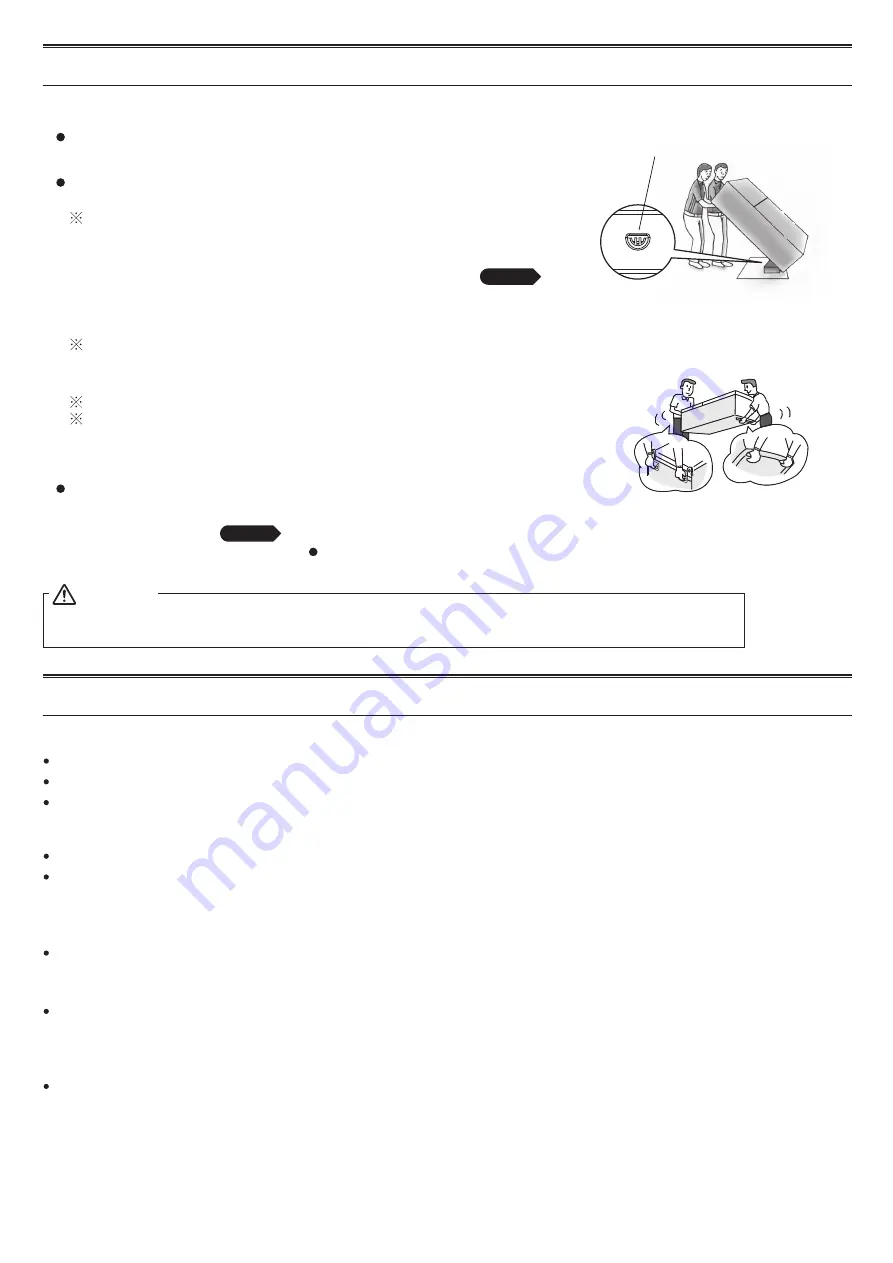
10
When the refrigerator fails to operate
Check for a power failure.
Check if the power cord is plugged into the power outlet.
Check that the fuse (or circuit-breaker) has not blown.
7. What to do in these situations
8. Troubleshooting
When the refrigerator is cooling excessively
The temperature control dial may be set too high.
If you place foodstuffs containing a lot of moisture directly under the cool air outlets, they will freeze easily.
This does not indicate a malfunction.
When you hear a sound similar to flowing water
The sound of flowing water is the flow of refrigerant (cooling gas). This does not indicate a malfunction.
When noise is produced by the fan grill of the refrigerator
The noise produced by the fan grill will stop at a certain fixed temperature. The airflow cooling system
inside the refrigerator is powered by the operation of the fan motor and fan grill.
When noise is produced while the refrigerator door is open
When you open a door panel, plastic components switch swiftly between hot and cold, and this may
produce noise. When the door is closed, the noise will remain until the difference in temperature is
reduced.
When there’s a power failure.
Minimize opening/closing of doors and avoid putting in more food.
When not in use for a long time.
Clean the Ice cube box and Ice tray, clean the interior after unplugging the refrigerator,
and keep the door open for 2 - 3 days to let it get dry.
If not allowed to dry properly, mold and odors can occur, or refrigerant (gas)
may leak due to corrosion of the cooling unit.
When transporting.
When moving the unit / when changing the direction of the unit.
1. Discard the water/ice from the Ice cube box and the Ice tray.
2. Use protective gear (protective gloves).
3. Lay towels under the water discharge outlet and under the back corners of the refrigerator,
and place a container or tray on the floor that’s about 3 cms high to catch water.
1. Lift the adjustable legs.
2. Move in a forward or backward direction. If moved other than a in forward or backward direction, there’s a risk of damaging the floor.
3. When changing the direction of the unit, please use caster wheels or place a protective cloth under the back legs.
Do not damage the refrigerant circuit, do not drive in screws, etc.
The unit uses a flammable refrigerant, so if the gas leaks out, there is the risk of ignition or an explosion.
4. Slowly tilt the refrigerator back to an angle of over 30 degrees, discharge water of the evaporator
tray through the water discharge outlet (the evaporator tray is not visible from the outside.)
5. With more than 2 persons, calmly and slowly transport the unit by grasping the
front side’s lower section inner edge and the back side’s upper section handle.
Towels prevent water from spilling on the floor and damage to the floor.
Have 2 or more persons do this work because the unit is heavy.
Avoid having young children or those without confidence do this work.
Please seek advice from a moving company.
Do not lay or load on its side (it will cause damage to the compressor.)
Water discharge outlet
Page 4
Page 5
Front side - lower
section inner edge
Back side - upper
section handle
WARNING






























